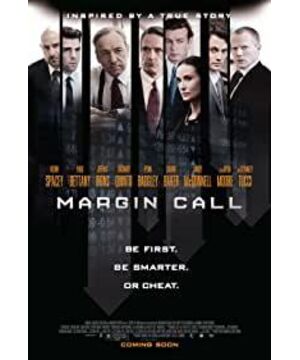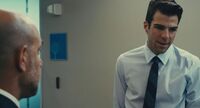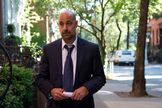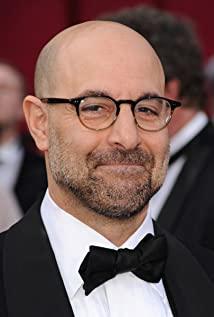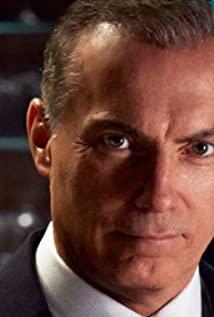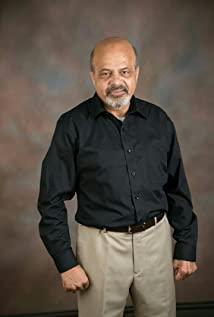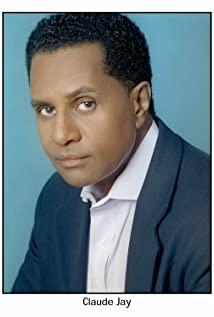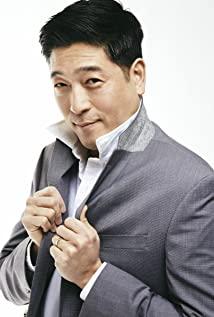It was a coincidence that I watched "Margin Call" again on Youtube. This film is often seen and new, and the Archegos incident happened when I watched it, which once again proved that the old investment bank survived the crisis by running fast. Unbreakable truth.
The 2008 financial crisis was called the Great Financial Crisis (GFC), and the tear and shock to American society was no less than 9/11. In addition to the countless red lines added by regulators and the resulting risk posts that a large number of Chinese students love, GFC It also inspired many "scar literature". Among them, there are three most famous ones: Margin Call from the perspective of investment banks, the documentary The Inside Job focuses on the systematic failure of public institutions (central banks, ratings, regulation), and The Big Short focuses on investors who took advantage of the crisis to make profits. A more comprehensive perspective on this crisis.
The most popular of the three was the star-studded The Big Short, but I prefer Margin Call, not because I work in investment banking and am more intimate with its background - I like the literary nature of the film. Compared with the other two films' savage attacks on the financial system and direct accusations of practitioners, Margin Call is more like a special event of GFC as a story background, showing the living conditions, moral dilemmas and moral dilemmas of everyone in the investment bank. The abyss of fate. In Love in a Fallen City, Japan's occupation of Hong Kong changed the fate of the male and female protagonists and fulfilled their love, but the war was not the protagonist, nor did it change the essence of this love. Just as GFC changed the fate of everyone in the movie, but GFC is not the protagonist, it just accelerated to expose the real predicament faced by this group of people. This dilemma is not shifted by a certain event, nor is it shaken by the personal will of these people, so this film is universal and timeless, which is what I call literary.
Director JC Chandor's father is a senior MD of Merrill Lynch. The opportunity to make this film is that he himself lost a lot of money during his GFC investment in New York real estate, but he said that the purpose of making this film is to "explore capitalism" ". Perhaps in his view, the core representation of capitalism is the investment bank, the center of capital operation, and the best embodiment of capitalism's alienation of people is the group of people in the investment bank.
The director is good at using the method of character comparison in the film, that is, using two characters with similar personalities or situations as supplements and explanations of each other's fate. For example, in A Dream of Red Mansions, "Qing is Dai Ying, Xi is Chai's deputy", Dai Yu's character is sharper but her life is thinner than paper, and Bao Chai's chengfu ambition backfired, so Qingwen and Xiren did the first. Another example is Chunqin and Chen Yunqiao in Legend of the Demon Cat, which actually shows the dark side of Yang Yuhuan and Li Longji's love, that is, the woman's love for wealth and vanity and the man's lustful lust, which implies that Yang Li's love tragedy is also born from this. of. For example, the love between Gu Xiang and Cao Weining in Shanhe Lingli actually alludes to the ultimate contradiction between the protagonist's good and evil, which is especially obvious when Gu Xiang and Wen Kexing talk about their fear of revealing their identity and being abandoned by Cao and interrupted by the other party's anger.
In Margin Call, the method of character comparison is used in three pairs of "two generations". These three pairs of people are all in the relationship between superiors and subordinates. The fate of the superiors has already been written, and the inferiors show how the superiors step by step to this "complete state". "Yes, there is nothing new under the sun, and when these people are placed together, the face of reincarnation is clearly revealed.
The first, and most obvious, pair is junior risk analyst Peter and his supervisor Eric. Eric should start off as a very senior risk control manager (with his own independent office), but obviously prefer a technical position rather than a management position (Sarah is his boss). He was abruptly fired in the opening big layoff, Peter caught up to express his gratitude when he left, and Eric gave him an unfinished risk valuation model to complete, which also brought out the whole story. These two people are also teachers and friends, and their personalities must be very compatible. They belong to high-IQ, gentle and friendly engineering men. For the sake of generous treatment, they gave up their jobs as engineers and chose the financial industry, and took up a post in the risk position in the background. They don't care and don't care about the internal power struggle of the organization. Instead, they are obsessed with technical issues. Eric has no idea that he is about to be laid off. When he left, he was only worried that his model was not finished. Peter was out drinking at his class. Wearing big headphones as a model, even the big boss doesn't know who it is.
Eric and Peter are both lucky people in this crisis. The former was the first to discover the crisis, and the management promised him a lot of money before the fire sale MBS. But at the end, Eric recalled a bridge he built when he was an engineer. This bridge brought real convenience to the residents on both sides of the strait, and what about his life-long work in an investment bank? Compared with the "physical industry" of engineers, financial work is rich in rewards, but there is unavoidable nihility in the creation of social value. At the end, Peter was taken to the executive dining room on the top floor, with the excitement in his eyes that could not be concealed from Vanity Fair for the first time. He did not know that he, who used to be a "rocket scientist" at MIT, after walking this startling career path, would It won't express the same emotion as Eric.
The second pair and the third pair are, to some extent, adversarial relationships. The biggest contradiction in the whole movie, or the moral dilemma, is not whether the problem Peter found is true (we will find out from the subsequent dialogue that this problem has already been reflected to the top management), but whether the investment bank should sell to save itself. They already know worthless MBS to the market. The embodiment of this contradiction is the conflict between Sam Rogers, the head of the trading department, and John Tuld, the CEO of the entire investment bank. John, as CEO, prioritizes shareholders' interests and is keenly aware of "the music has stopped" and advocates for the "fire sale", while Sam is vehemently opposed by practitioners, arguing that this will cost them all The trust of the trading counterparty, and trigger the price avalanche of MBS, resulting in a liquidity crisis in the entire market.
The two have confronted many times about this issue. In their conversations, we can see that John and Roger actually joined at the same time, and they were both in sales positions, but John was already in the company building by helicopter when he appeared. The big boss of the group who landed at the top has a lot of power in the walking room. And Roger is only the director of the trading department at this age. He is led by a much younger Jared, divorced, and is not close to his son (it was Peter reminding him that his son is also a trader). . He was completely tired of his work, and his subordinates were dismissed and ignored, but he couldn't do without the job. In the end, he gave up his conscience because of money, and he just wanted to just wash his hands. "It is hard to believe. After so many years, I still need the money"
The film does not show their career growth experience, but we can get a glimpse of it from their immediate subordinates. John's immediate report is Jared, played by Simone Baker, and Roger's report is Will Emerson, played by Paul Bettany. Jared is the head of the entire investment banking department, but he appeared much younger than his subordinate risk trading head when he appeared. Will, who was the same age, couldn't hide his jealousy and disappointment when asked by Peter why the head of the entire investment bank was so young, "this happens all the time, just not to me. The kid is an animal."
Jared's rapid promotion is because of his animal nature, which is also implied in John. After the incident, he ate bloody steak alone in the top-floor restaurant in front of the sunset. The Fire sale he initiated has led to The complete devaluation of MBS has brought about a complete explosion of GFC, and countless people will be displaced because of this, but he seems very excited and talks about the money-making opportunities in the next few months. When Sam asked him "how did we fuck up so hard" nonchalantly, these things just kept happening and we were just reacting to it.
If John shows the ruthlessness and lack of moral baggage of such people, Jared shows how they achieve rapid promotion in investment banking from the side. As soon as Jared appeared on the stage, he showed a very shrewd acumen and action. In a late-night meeting, when he learned about Peter's educational background, and Sarah and another risk control looked at his model without talking, he immediately realized that something was wrong. After asking twice the time, he rushed out of the room decisively. At the end of the meeting, everyone agreed that the problem was extremely serious, and Sam asked him nervously if he would escalate to the big boss. He smiled triumphantly: I already did - it turned out that he immediately reported it when he saw something wrong. Calling the big boss early in the morning is not due to his amazing judgment and inability to make decisions, but the big boss quickly called the board of directors and came to fight the fire by helicopter overnight, which also reflects the trust of the top management in him. This move not only won valuable decision-making time for the investment bank, but also is very beneficial to his personal positioning: after this crisis, large layoffs are bound to come, and the senior management must also hand over a few people to report first, and he will immediately With the first merit, he has a natural advantage in the subsequent scapegoating session.
After the board meeting, John said to Jared "pls come up with an action plan". It can be said that the next series of actions were planned by Jared: get the exception approval from the senior management, open a package for the main character, find Will Control Eric who knows the inside story, bring the company control, let John be responsible for convincing Sam to lead the Fire sale, coercion and inducement. He was also personally responsible for supervising the execution. When he felt that Sam might be unstable, he approached Will and hoped that the other party could replace Sam. When Sam held a meeting with his subordinates, he read his lips from the window to ensure his intentions, and then reported to John. With such an amazing strategy and loyalty to John in such a short period of time, it is no wonder that Sarah was dismissed by him when she kept trying to form an alliance with him - as the camera turned, Sarah was notified and Jared was in the toilet. Lily shaves smugly, topless (an animalistic gesture), and casually says "ya I will fire you" to the sobbing junior analyst "Dan".
Will muttered in horror when Peter asked him what the hell management was going to do about it, he'd seen too much in this investment bank, "but no matter what. They don't lose, they don't lose". People like John and Jared are the ones chosen by the investment banks from generation to generation, or the true darlings of any organization in capitalism: their ability, ambition and unfailing cruelty will forever ensure their value is irreplaceable , also guarantees "they don't lose"
Similar to Jared to John, Will has absolute loyalty to Sam, and when Jared asked him if he could replace Sam, he refused without hesitation. As a middle-level leader in the investment bank, Will is also a line connecting various characters, introducing everyone to Peter and the audience. Although he acts exaggerated and foul-mouthed, he is actually a good person. In the middle of the night, he also cares about the junior risk control analyst not to go home too late. He also has a good relationship with Eric. Dan.
Will's business ability is obviously very good, and he has been paid very handsomely for it. Although he is not as successful as Jared, it can be said that he is proud of himself. He could see the seriousness of Peter's model at a glance and immediately notify his superiors. He also showed the ability to fool the trader who was light-hearted in the Fire sale at the end. But behind his famous "how to spend 2 million dollar" speech that inspired countless business school students, he has very obvious mental problems - he even climbed up the railing in the middle of the movie when everyone went to the rooftop to smoke and smoke. Want to commit suicide, laugh after being persuaded: not today, indicating that suicidal tendencies have been around for a long time.
Will's suicidal tendencies are not clearly explained, but his lifestyle is a very typical banker lifestyle before the GFC: a car beauty, a drunken fan, (the meal fee can also be reimbursed), but he obviously has not established a close and healthy relationship with people. He has no ability to plan his finances (or he cannot live without the way such rewards bring him), and his spiritual level is also relatively empty. Can't say that this guy has a strong moral sense, but he was at least uncomfortable and shocked when he went through several dirty incidents of "things that you cannot imagine", and before selling MBS, it can be seen that he was trying his best to protect himself moral dilemma. But he realized it was a moral dilemma, just as Sam stood up at the board and scolded "you're selling a worthless thing to investors" already meant that the two of them were not destined to go to the top of the organization. , and will not work here until old age without burden.
If this trajectory of life goes on, he will become the next wife and son, and Sam, who hates work, doesn't seem to be so unpredictable. In fact, even Sam, who looks insensitive, can still reflect his humanity in the details, which is related to Will's friendliness. He would whisper to Sarah about the seriousness of the problem in the middle of the meeting and said that he had already reminded her, but he would not disclose it publicly, and the management would shut up as soon as they appeared. At the end, he learned that his trader was fired immediately after the fire sale, and he was directly angry with John, even though he didn't know who those people were. Neither of them are "bad people" like John and Jared, nor are they "good people" like Eric and Peter. They are "ordinary people" who can do well in investment banks. They have certain moral values, are not bad people, and have business. The ability may not be able to do the management, but it is enough to ensure that they survive the storms one after another. But they were alienated, at least not so happy.
At the end of the film, Sam's dog finally died. He drove to his ex-wife's yard, crying and burying the dog with a shovel. It was the only scene in the movie that left Midtown New York. His wife told him to take care, and the lights of New York flashed in the distance. Another day passed .
There should be a deep tragedy of fate in it, but I don't know it because I am still in the game. I just appreciate the literary nature of the film and write my findings here.
View more about Margin Call reviews


